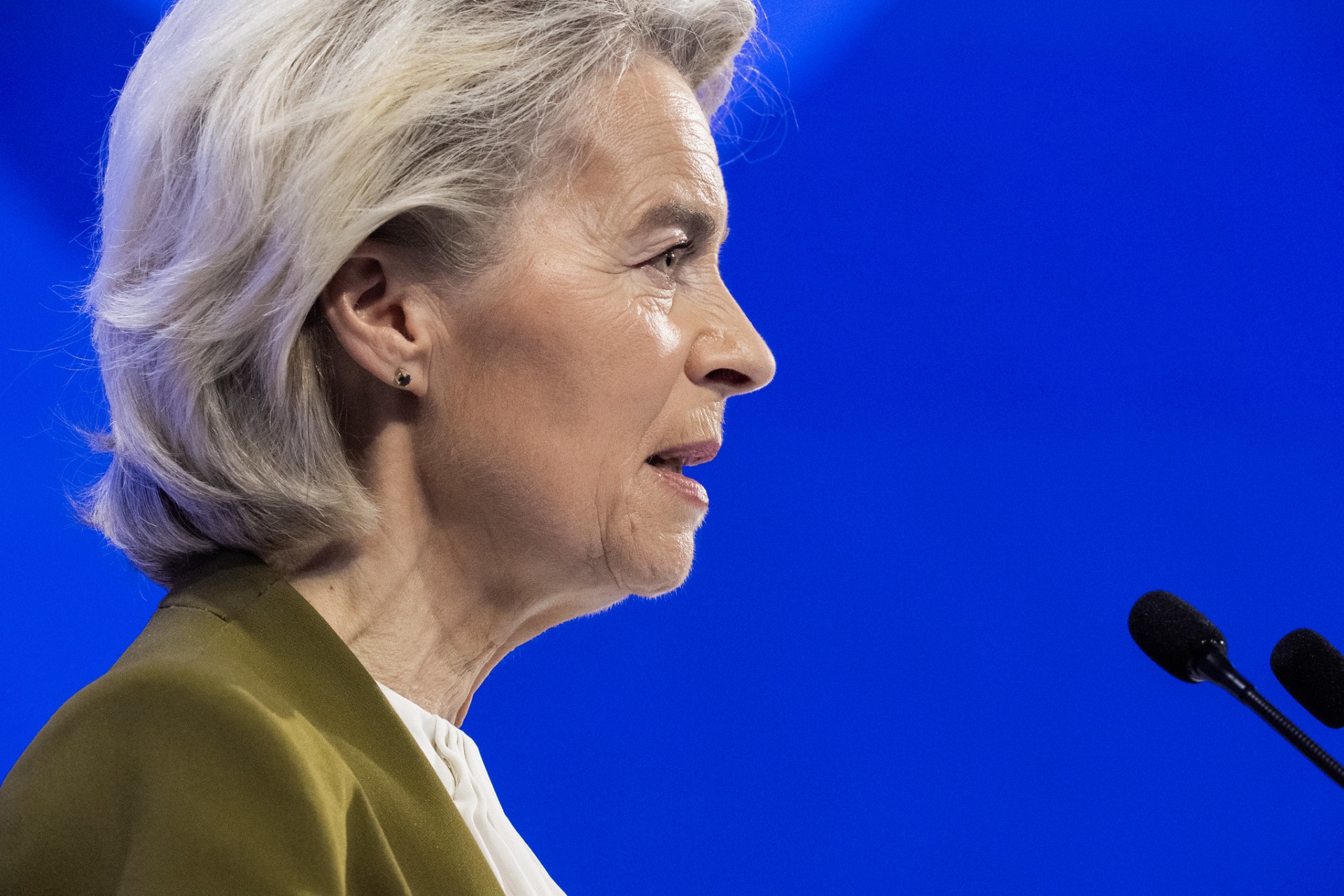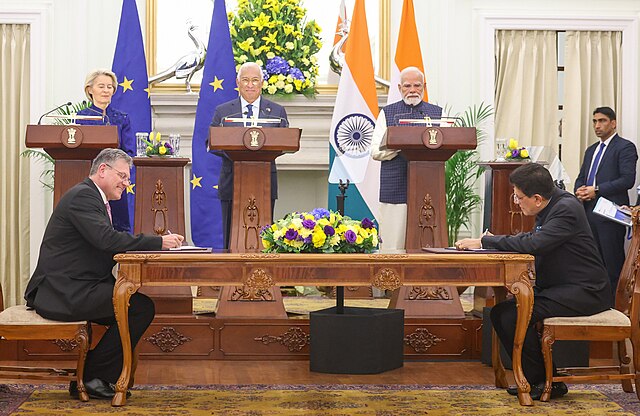At a rally for the Partido Socialista Obrero Español (PSOE) on Saturday, March 4, Prime Minister of Spain Pedro Sánchez announced the introduction of a new gender equality law aimed at narrowing the gap between the sexes at the highest levels of business and politics.
The law, which aims to increase the number of women in decision-making positions in both business and politics, has been approved by the cabinet and now will pass to parliament for debate and a vote.
Si las mujeres son la mitad de la sociedad, deben ser la mitad del poder político y del poder económico.
Algunos lo verán excesivo, pero quienes creemos en el feminismo lo vemos simplemente justo. pic.twitter.com/lymj8d1biE
— Pedro Sánchez (@sanchezcastejon) March 6, 2023
Within the world of business, the law will require “the underrepresented sex” to hold at least 40% of the positions on corporate boards and ensure that similar levels of parity are maintained at the highest levels of management.
The rules will apply to all publicly-traded companies by July 1, 2024, and to all companies with at least 250 employees and €50 million ($53 million) in annual revenues by June 30, 2026.
According to Bloomberg, most of the companies on Spain’s principal stock exchange meet these quotas already, but gender equality tends to drop in smaller companies. Women accounted for 29% of board members of listed companies in Spain in 2021.
The law will also mandate that professional associations have at least 40% women on their boards and on juries for any awards financed with public money.
Within politics, a similar 40% quota has been outlined for the government cabinet, and the list of candidates for elections will need to include an equal number of male and female candidates.
This means that each sex must occupy at least 40% of cabinet positions, and some have pointed out that Sanchez’ current cabinet doesn’t adhere to this quota.
The Spanish cabinet is made up of eight men and 14 women, meaning that men do not quite account for 40%. With women holding 61% of cabinet positions, Sánchez’ government has one of the highest ratios of women to men within Europe.
Women currently make up 43% of Spain’s congress and 40% of its senate.
EU Directive Means More Countries Will Follow Suit
Although sex-based discrimination in the workplace is already illegal within the European Union (EU), this measure does not seem to be sufficient in helping women reach the highest positions of economic decision-making.
According to data from the European Institute for Gender Equality (EIGE), women in the EU’s largest publicly-listed companies still make up only 31.5% of board members and 8% of board chairs.
Although Spain is one of the first to make more equal representation a legal requirement, a new EU directive means that countries will have to adopt similar laws in the near future.
In November 2022, the European Parliament, one of the legislative bodies of the EU, officially adopted a new law aimed at improving the gender balance among directors of listed companies.
After 10 years since the @EU_Commission proposal, we will now have an EU law for gender equality on company boards.
The glass ceiling preventing women from accessing top positions in companies has been shattered.
This is a truly historic and moving moment. #WomenOnBoards
— Ursula von der Leyen (@vonderleyen) November 22, 2022
The new directive states that all listed companies in the EU should aim to have members of the underrepresented sex hold at least 40% of non-executive director positions by 2026. EU member states can choose for the law to apply to executive directors as well, in which case companies should aim for women to hold at least 33% of all director positions.
If companies fall short of these targets, the directive mandates that they adjust their selection process for the appointment of board members.
Notably, member states are also free to introduce measures that go beyond the proposed system, which is exactly what Spain has chosen to do. Since the new EU directive doesn’t have a quota for top management positions or politics, these proposed measures exceed the requirements set out by the EU directive.
What are other EU countries doing?
A few countries within Europe have quotas affecting the gender balance within political arenas.
In 1994, Belgium became the first in Europe to introduce a similar policy, declaring that the number of candidates of one gender on an electoral list could not exceed two-thirds.
Since 2000, electoral lists at most levels in France have had to be evenly split between men and women.
When German chancellor Olaf Scholz took office in 2021, he committed to having gender equality in his cabinet, but there have been more male than female ministers after he replaced defence minister Christine Lambrecht with Boris Pistorius in January.
Similarly in France, president Emmanuel Macron has extended the pledge by his predecessor to have a 50:50 gender balance in his cabinet, including among junior ministers and secretaries of state.
Related Articles: How A Treaty to Improve Women’s Rights is Dividing the EU | European Parliament Votes to Enshrine Abortion in EU Charter of Fundamental Rights | Why Do So Many Companies Lack Women Leaders? | New Menstrual Leave and Abortion Laws in Spain: Are Reforms a Gain for Women?
Within the world of business, other EU countries have already established similar gender equality laws to that of Spain. Since 2011, Belgium has required at least a third of positions on company boards to be held by each sex, a policy that seems seems to be bearing fruit as the proportion of women in such roles quadrupled between 2008 to 2020.
France has mandated that women to make up 40% of corporate boards since 2011, and by 2019, France was leading Europe in this measure, with 45% of corporate board positions in the country held by women. In 2021 a similar quota, 30% by 2027 and 40% by 2030, was extended to include executive leadership positions.
In 2011, Italy mandated that 30% of its corporate board positions must be held by women but raised the threshold to 40% in 2019.
Germany adopted a law in 2015 requiring boards of large companies to be composed of a minimum of 30% women and 30% men and also recently chose to extended this benchmark to senior management positions as well.
Is the new law just one stepping stone to wider social equality in Spain?
The proposed law is one a spate of new laws in Spain addressing gender equality that have come from Sanchez’ coalition government.
In December of last year, Spain passed a pioneering sexual health law aimed at improving women’s access to sexual health services.
The law addresses menstrual health by mandating period products be freely available in public institutions like schools, social service centres, and prisons. The new law also regulates federally funded leave for women who experience painful and disabling periods, making Spain the first country in Europe to offer such a program.
In addition, it removed the requirement for 16- and 17-year-old girls to have parental consent in order to access abortion, a law that was put in place by the previous government and drew concern from Human Rights Watch.
The law includes a host of other new regulations covering pre-birth maternity leave, contraception, sexual education, and reproductive violence.
Besides the sexual health law, Sánchez’ government also passed the controversial Guarantee of Sexual Freedom law, also known as the “Only yes means yes law,” last year.
This law changed the definition of rape within Spain’s legislation so that victims will no longer have to provide proof of violence or threat of violence, coercion or resistance against their attacker in court. Instead, the burden of proof falls on the defendant, who must prove the presence of consent.
The wording of the text itself divided the parties of the coalition government, which caused a delay in the law making its way through the legislative proceedings.
Although the language was thoroughly scrutinised in order to offer a clear definition of sexual aggression, the law still somehow managed to pass with a loophole that actually reduced the prison sentences for over 200 sex offenders.
PSOE’s coalition partner, Unidas Podemos (UP), was the driving force behind the legislation and has resisted any change to the law, claiming that the loophole is not a result of technical difficulties with the law but instead a result of misogynistic judges choosing to misapply it.
Un grupo de hombres agrede sexualmente a una mujer con discapacidad. El juez no contempla agravante de discapacidad, ni de grupo, y baja la pena. Obviamente es una incorrecta aplicación de la ley. pic.twitter.com/jLIKZoHjR9
— Ione Belarra (@ionebelarra) February 1, 2023
Nonetheless, the law has drawn plenty of criticism from across the aisle, and the leader of the conservative Popular Party (PP), Alberto Núñez Feijóo, said Sánchez “will go down in history as someone who set the feminist struggle back in Spain.”
Although Sanchez has outspokenly identified as a feminist, another one of his policies, which allows transgender people over the age of 16 to self-identify, has also drawn criticism from both feminist activists and conservatives and caused a divide between the parties of the governing coalition.
Sánchez has noted:
“Only through feminism will we build the best democracies, which is precisely what some people do not want to happen in Europe.”
Spain is also the only EU country that has incorporated gender equality as one of the pillars directing their Recovery, Transformation and Resilience Plan, which lays out how Spain intends to channel the funds allocated by Europe to recover from COVID-19. Gender equality will be a guiding motive for Spain’s recovery plan alongside ecological transition, digital transformation, and territorial and social cohesion.
The announcement by Spain of the new gender equality law coincides with International Women’s Day, which takes place on March 8 and is meant to offer a moment to reflect on the role of women in modern societies across the world.
Los avances sociales se logran con leyes.
La #ParidadPorLey establece un 40% de participación femenina en los órganos de dirección públicos y privados.
Esta es la política útil que cambia la vida de la gente.
🎙️Lo explica la vicepresidenta @NadiaCalvino pic.twitter.com/3XTZHLoLgd
— La Moncloa (@desdelamoncloa) March 7, 2023
To mark this occasion, Secretary General of the United Nations Antonio Guterres offered a dire prediction on Monday, saying “Gender equality is growing more distant. On the current track, UN Women puts it 300 years away.”
Perhaps time will tell if policies like these, which address the overlaying symptoms of misogyny that persist in our society, will also act towards addressing the underlying obstacles that continue to prevent women from organically attaining these positions in equal numbers to men.
And perhaps it is also worth examining whether holding up high-level positions in business and politics as the ultimate emblem of women’s empowerment, rather than allowing due recognition and financial compensation to the occupations where women already dominate, is a worthwhile benchmark rather than one more idea of success that has been defined by patriarchal standards.
Editor’s Note: The opinions expressed here by the authors are their own, not those of Impakter.com — In the Featured Photo: “Congreso de los Diputados” building in Madrid, Spain. Featured Photo Credit: Leandro Kibisz.














